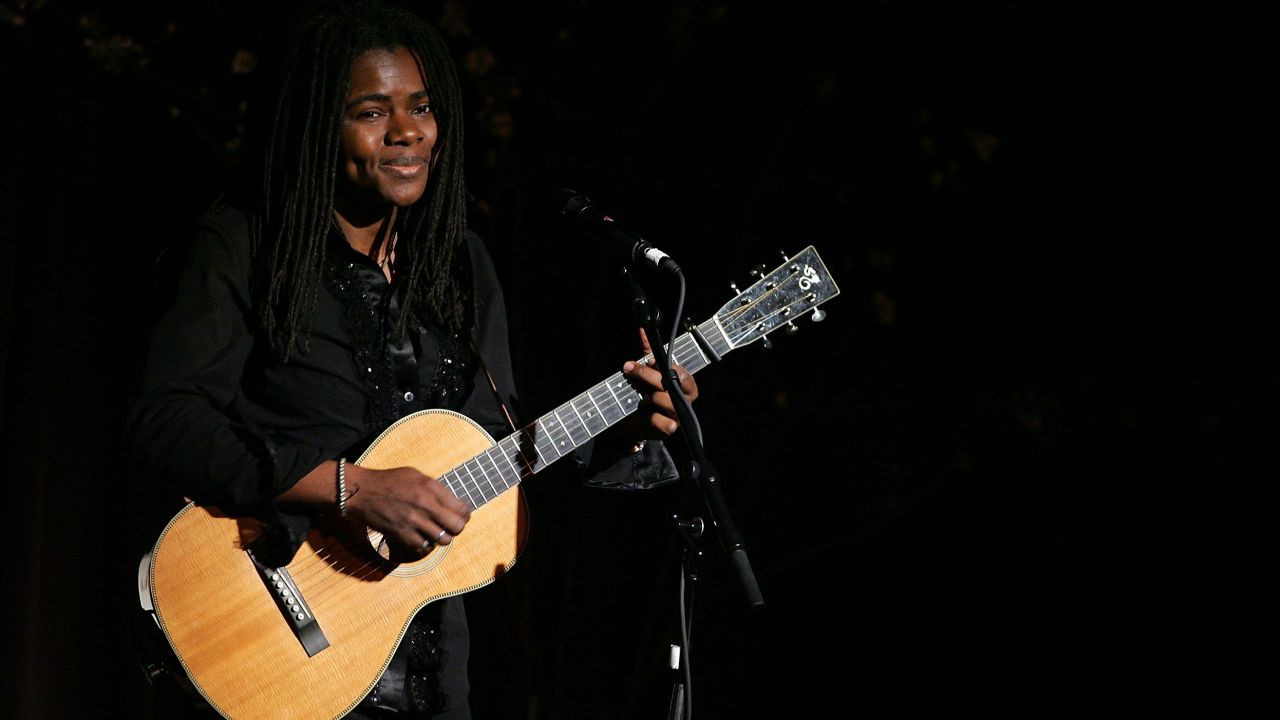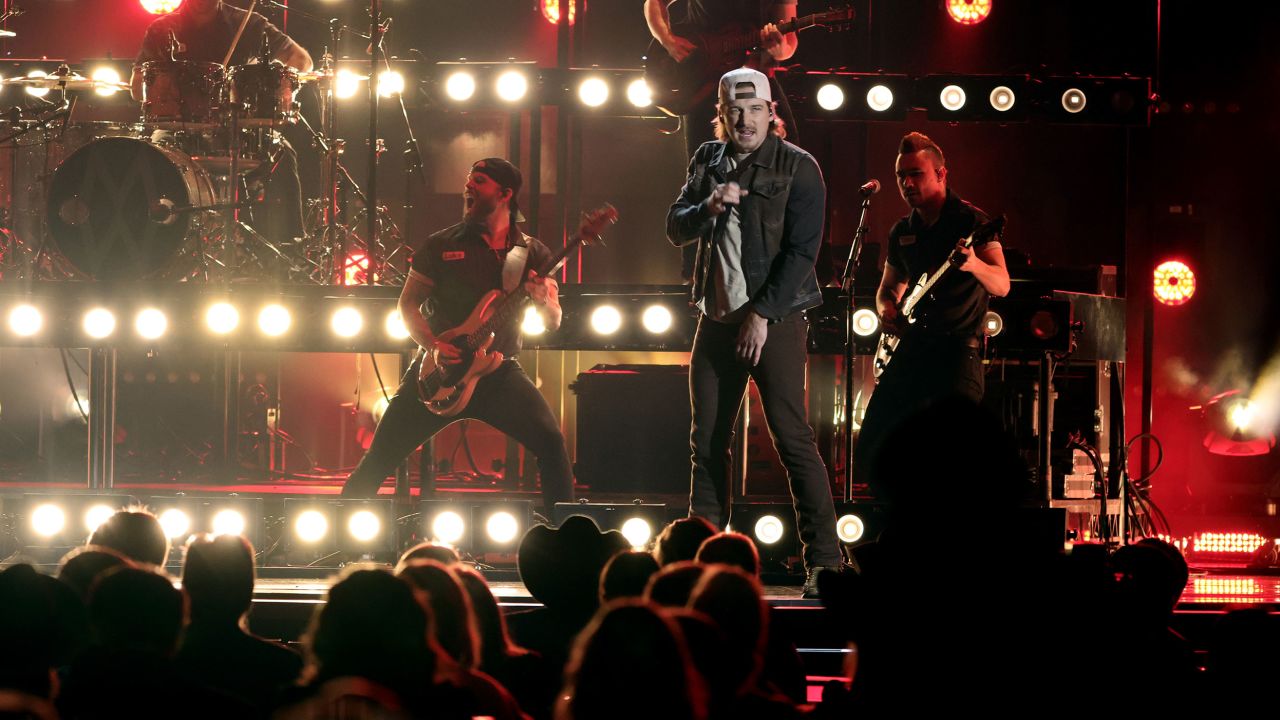
This article is more than
2 year old
That’s all part of it, for certain. But a longer pause on the radio dial, or a deeper dive into the genre’s roots, reveals far more variation — different traditions and cultures calling to each other, answering and reinventing themselves as they go.
The struggle for the soul of country music is on full display now as two very different songs have been making headlines. Jason Aldean, one of country music’s biggest stars, has been embroiled in controversy over his single “Try That in a Small Town.” The song contains what critics say are racially charged lyrics, and scenes from the music video were shot in front of a courthouse that was the site of an infamous lynching in the 1920s. The backlash was so complete, CMT removed Aldean’s video from its rotation and the original YouTube version was edited to remove several seconds of protest footage.
Meanwhile, fellow country star Luke Combs has been going viral on social media with his platinum cover of “Fast Car” by famed singer-songwriter Tracy Chapman. Some of the attention has been positive, praising his rendition of the famous ballad and discussing the impact of his homage to Chapman who, as a Black woman and queer icon, is a triple whammy of underrepresentation in country music.
In an interview with Billboard, Combs called “Fast Car” the “perfect song” and Chapman a “supernatural songwriter.”
“The success of my cover is unreal and I think it’s so cool that Tracy is getting recognized and has reached new milestones. I love that she is out there feeling all the love and that she gave me a shout-out! Thank you, Tracy!”
Chapman herself, who is notoriously private with both her personal life and her music rights, also commented to Billboard about the song’s success.
“I never expected to find myself on the country charts, but I’m honored to be there. I’m happy for Luke and his success and grateful that new fans have found and embraced ‘Fast Car.’”
The crossover also made history, cementing Chapman as the first Black woman to have a sole writing credit on a No. 1 country radio song.
Dividing the divisions

Both “Try That in a Small Town” and “Fast Car” have topped country charts in recent weeks. While they represent something of a divide among the genre, they’ve also led to an exploration of finer fissures within. Aldean has millions of supporters who see his ode to small town solidarity as a continuation of what made country music so resonant in the first place: The telling of stories forgotten by the mainstream.
(Small town pride is also a favorite theme of Aldean’s, whose hits include 2010’s “Flyover States” and “Dirt Road Anthem,” and the early hit “Amarillo Sky,” which details the noble struggles of a proud farmer.)
Aside from the controversy of lyrics slamming gun control and threatening people who disrespect police, Aldean’s song set off interesting conversations as people discussed what being from a small town really means, and indeed, what a small town even is. (Aldean himself is from Macon, Georgia, which may seem like the sticks to some people but is, in fact, a mid-sized city that also helped form rock greats like Little Richard and Otis Redding.)
“Try That In A Small Town, for me, refers to the feeling of a community that I had growing up, where we took care of our neighbors, regardless of differences of background or belief. Because they were our neighbors, and that was above any differences,” Aldean wrote in a statement defending the song.
As for Combs, the same reasons that attracted praise for “Fast Car” have also attracted criticism. The song, like Chapman herself, has been a lighthouse for people on the margins since its release in 1988, dealing as it does with poverty and loneliness and the universal appeal of getting the heck out of town with your baby by your side. (And, in the process, became a lesbian anthem.) While it’s a very country message, some fans were uncomfortable that a straight, White male singer would add his voice to Chapman’s genius.
“On one hand, Luke Combs is an amazing artist, and it’s great to see that someone in country music is influenced by a Black queer woman — that’s really exciting,” Holly G, founder of the Black Opry, told The Washington Post. “But at the same time, it’s hard to really lean into that excitement knowing that Tracy Chapman would not be celebrated in the industry without that kind of middleman being a White man.”
Defining the soul of country

These two songs, so differently received yet recorded under the same big country umbrella, are an embodiment of the crossroads where country music currently stands. Like all musical traditions that fuse, evolve and splinter, country music and its legions of fans are engaged in a negotiation for the genre’s main identity.
Do they embrace the class-conscious, anti-capitalist forefathers and foremothers who played in prisons and supported laborers and held staunchly leftist views by today’s standards? (They still live today: Willie Nelson is a proud Texas Democrat and Dolly Parton an LGBTQ ally.) Do they turn up the party-happy “Bro Country” of the early 2000s, or champion the red-white-and-blue anthems that still represent, for so many, a platonic ideal of patriotism?
Do they welcome the fresh influx of non-White country artists, or ignore the inheritance secured by the voices of Black and Latin American artists who helped build the genre? Do they sing with these voices, or sing over them?
Moreover, what can be accepted? Queer country acts are on the rise, but will they ever join country’s highest ranks of outcasts, rebels and beaten-down lovers? Or will songs with even a hint of pro-LGBTQ themes, like Kacey Musgraves’ “Follow Your Arrow” or Little Big Town’s “Girl Crush” continue to be met with friction?
What can be forgiven? When the Dixie Chicks spoke out against the Iraq War in the early 2000s, their popularity in country music circles never fully recovered.. When current superstar Morgan Wallen was caught saying racist slurs, his supporters kept his album “Dangerous: The Double Album” at the top of the charts for weeks after the backlash. In the year that followed, he launched a new tour and an appearance at the Grand Ole Opry. Combs has sought forgiveness, too: In 2021, he apologized for past performances that featured the Confederate flag.
“I know that I’m a very highly visible member of the country-music community right now,” Combs said. “And I want to use that position for good, and to say that people can change and people do want to change, and I’m one of those people trying.”
These decisions beg a larger question: Can the myriad interpretations of country music exist side by side? If something must change, what of the genre’s essential character would disappear along with it?
As the reactions to Combs and Aldean’s songs prove, it’s not an easy negotiation. Small towns, fast cars and American values are as essential to country music as three chords and the truth. Who gets to define American values, and whose truths get told; that’s where the crossroads lie.
How fortunate, then, that crossroads are as country a symbol as you can get.